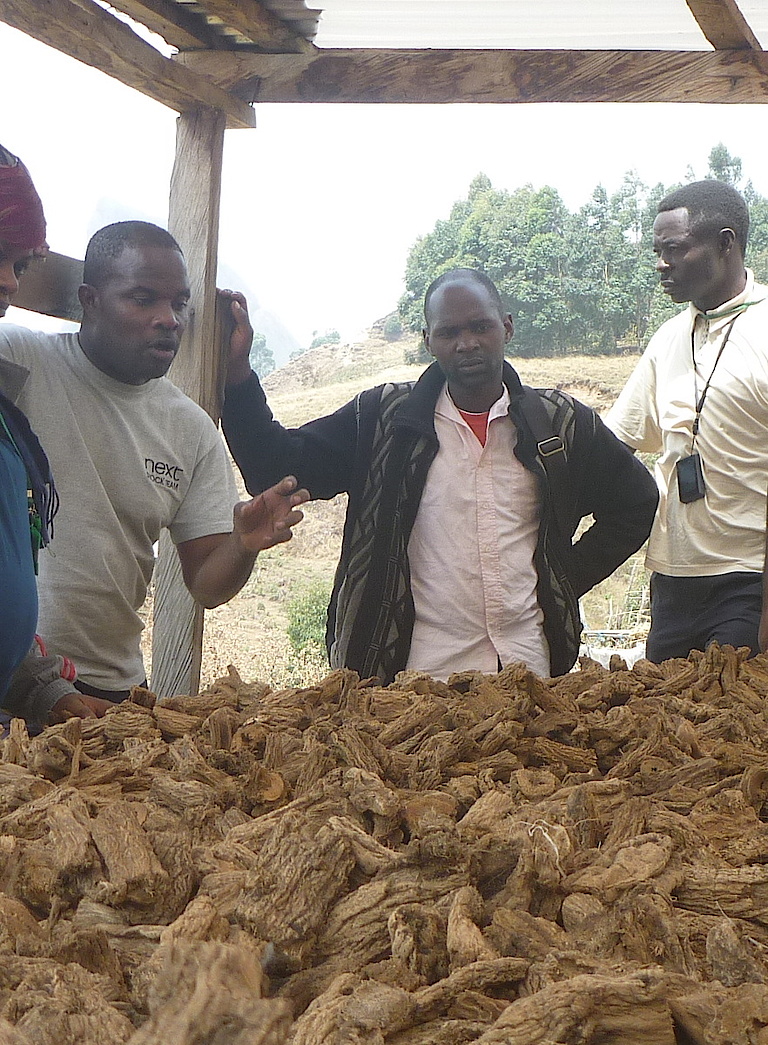Biotrade, especially with non-timber forest products (NTFPs), is important for Cameroon’s local and national economy, both, on the informal as well as on the formal level. About 38% of vegetal NTFPs are used as food and the annual economic value for 16 of them is estimated at 32 billion XAF (64.7 million USD). Their value added is estimated at 6.4 billion XAF (13 million USD) representing 0.2% of the GDP of the country with at least 283,000 people involved (CIFOR: Awono et al. 2016).
Private sector companies from all over the world show long-term and continued interest in Cameroonian biodiversity-based resources and are lately facing some additional challenges due to the current ABS situation. In 2013 the Cameroonian government started to work on an interim ABS legislation in form of a ministerial decree. When political will to implement the Nagoya Protocol rose, it was decided to elaborate a specific ABS law instead of the decree. With support of the UNDP ABS project and the regional GIZ COMIFAC project, the law, including its implementing text was developed and technically validated in 2018. After passing through various steps of the political validation process, the ABS law has been transferred to the presidency in December 2019 and is currently awaiting its entry into force.
With this provisional regulation in force, the National ABS Committee is now mandated to process incoming ABS access demands in the same spirit as outlined in the law. The respective ABS procedure including a process visualization is described on the ABS Clearing House Mechanism. Cameroon is currently processing first ABS access demands while waiting for the first ABS permit to be delivered. In order to ensure ABS implementation in the interim, a ministerial decision regulating ABS nationally was signed and published by the Cameroonian Minister of Environment in December 2020.
More about national ABS frameworks and other elements needed for successful ABS implementation here.
More information on the interlinkage between ABS, BioTrade and sustainable value chains here.
